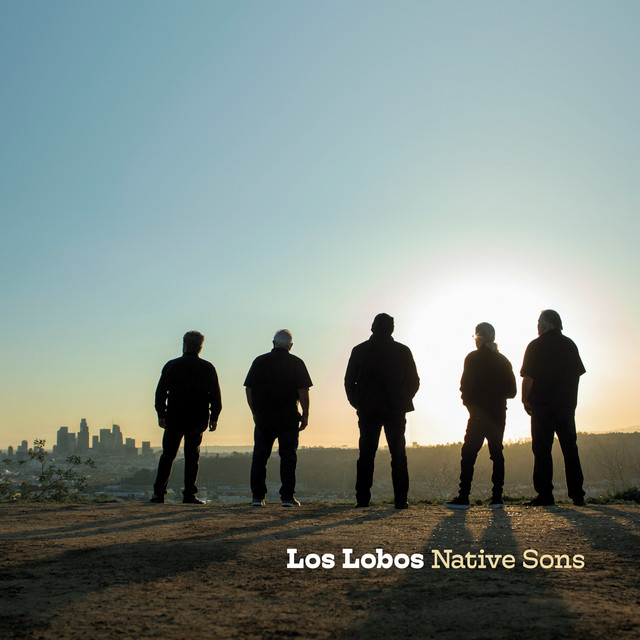
No More Beatlemania, Once Was Enough!
It’s Time for Los Lobos Mania!
Notes on Los Lobos’ “Native Sons”
I once published a theory about bands with five guys. It went like this: bands with five guys suck. I published the theory in a zine and we received dozens of letters, most contesting the theory and saying what a fool I was. When my band played shows, strangers accosted me to tell me I was wrong. I can be timid and don’t always think well on my feet outside the classroom. Yet I fended off all challengers. The theory was silly but surprisingly solid.
A friend and I thought of the theory while watching a band called Kerosene open for a Green Day/Boredoms bill. This quintet, Kerosene, were awful. When they tossed copies of their cassette into the audience, people threw them back. As Kerosene flickered way, we thought of other bands with five guys: Pearl Jam, Styx, Journey, Foreigner, Kansas, Earth Crisis, the Eagles. The list went on and on. I came up with a few clauses to provide wiggle room (the presence of a woman in the band could offset the curse, some five guy bands qualified for “greatest hits band” status). Bands with five guys generally fizzled out following a good record or two in part because they didn’t have five distinct personalities in the ranks.
Los Lobos were always the exception (even if their long-standing practice of using different drummers makes them more of a six-plus than a five piece). They have tons of personality without letting the ugly side of ego seep in and they spare us the cliches that usually bog down professional musicians. Up front they have David Hidalgo and Cesar Rosas—guitarists and singers with different kinds of cool. Hildago is the towering introvert whose sensitivity is implied through his performances, equally adept with six strings or an accordion. Rosas, shorter, more extroverted, is rarely seen without his iconic shades. Plus, he’s a lefty.
Los Lobos have a super steady and flexible rhythm section in Conrad Lozano and Louis Pérez. Lozano is probably the quietest band member, at least publicly, which only makes me more curious. When I saw them in concert last weekend I found myself humming his bass lines over and over, sometimes tuning out the rest of the band inadvertently. Then there’s Louis Pérez. I know he’s the band’s main lyricist and I have to read more about and by him. He’s been subtly opening my eyes to class politics and the Mexican-American experience for over three decades. On stage at that same show, he seemed untethered, kind of floating about, and I couldn’t tell if that was for better or worse. He stood center stage strumming a guitar. He had a mic but didn’t use it. He was close to the rest of the band, but didn’t seem to make much contact visually or verbally. Then he sang a lead vocal, played a scorching guitar solo, and took a turn on the drums. He’d been part of the flow, part of the give and go, then all over the place. Finally, there’s the new guy, Steve Berlin, who joined the band nearly 40 years ago. Switching between saxophone, flute, and keyboards, he brilliantly colors and shades whatever the rest of the band outlines.
Unlike, say, Def Leppard you couldn’t replace any of the five guys in Los Lobos and retain the same chemistry. It has to be these particular musicians to be Los Lobos. That’s probably why, they have such an amazing range—rhythm and blues, norteño, zydeco, blues, soul, ballads across genres—and always sound like themselves.
My current playlist usually has a record from the Los Lobos family tree, even though they’ve had few new releases in recent years. (It was just last month that I discovered Houndog, David Hildalgo’s 1999 side project with Mike Halby of Canned Heat.) This will happen when a band approaches the half century mark. Still, I didn’t have high hopes when I heard their latest record, Native Sons, would be a collection of covers. A cover album is sign of surrender, a white flag that says, “Get us out of this contract!” or “Please stop buying our records so we can break up!” But Native Sons often rises above, shining brightest when Los Lobos push the tempos, feed the proverbial engine the just-right ratio of air and gas. I’d recommend this disc even if only offered the songs originally recorded by Thee Midnighters (“Love Special Delivery”), Lalo Guerrero Y Sus Cincos Lobos (“Los Chucos Suaves”), Percy Mayfield (“Never No More”), and the Blasters (“Flat Top Join”). They even kick new life into “Farmer John,” a song covered often but never so well (“The girl with the champagne eyes” – how did I not notice that line before?).
True enough, some of these songs fall flat, especially when Los Lobos aim to recreate favorite songs from their formative years, trying to get as close as possible to the originals rather than make them their own. I skip the Buffalo Springfield and Beach Boys covers and expected to do the same with their version of Jackson Browne’s “Jamaica Say You Will.” Then I reread Louis Pérez‘s liner notes. His admiration for the song’s melody rose above mere nostalgia. While “Jamaica” sparked pleasant memories, it also appealed to his wiser, songwriting self. That nudge was all it took to reconsider. (Pérez is right and the Los Lobos rendition is beautiful.)
I’ve read Los Lobos nearly broke up during the pandemic, and I’d be bummed out if an album of covers proved to be their swan song, though a heartfelt look back might be the best way to move on.
Follow Vol. 1 Brooklyn on Twitter, Facebook, and sign up for our mailing list.
